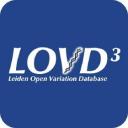dbSNP contains human single nucleotide variations, microsatellites, and small-scale insertions and deletions along with publication, population frequency, molecular consequence, and genomic and RefSeq mapping information for both common variations and clinical mutations.
...continue to readGene SNP is part of the Environmental Genome Project (from NIESH) web resource that integrates gene, sequence and polymorphism data into individually annotated gene models. The human genes included are related to DNA repair, cell cycle control, cell signaling, cell division, homeostasis and metabolism, and are thought to play a role in susceptibility to environmental exposure.
...continue to readVnD (Variations and Drugs)is a consolidated database containing information on diseases, disease and drug related genes, genetic variations, protein structures, and drug information, to understand the trilateral relationship among genomic variations, diseases, and drugs.
...continue to readHaploReg is a tool for exploring annotations of the noncoding genome at variants on haplotype blocks, such as candidate regulatory SNPs at disease-associated loci. It brings together data from chromatin-mapping and comparative-genomics studies. Researchers can enter common variants and see whether they fall in a highly conserved region, disrupt a regulatory motif or are associated with a regulatory element in a particular cell type. It provides the same information for common variants that tend
...continue to read
Add to my favorites
Remove from my favorites
A Deep Catalog of Human Genetic Variation
Category: Genetic variations
The International Genome Sample Resource (IGSR) maintains and shares the human genetic variation resources built by the 1000 Genomes Project. We also update the resources to the current reference assembly, add new data sets generated from the 1000 Genomes Project samples and add data from projects working with other openly consented samples.
...continue to readPolyPhen-2 (Polymorphism Phenotyping v2) is a tool which predicts possible impact of an amino acid substitution on the structure and function of a human protein using straightforward physical and comparative considerations.
...continue to readThe genome-wide association study (GWAS) publications listed in this catalog establish genetic associations between hundreds of genomic loci and complex (multigenic)traits, many of them diseases. Only those attempting to assay at least 100,000 single nucleotide polymorphisms (SNPs) in the initial stage, are included here.
...continue to readAn Online Catalog of Human Genes and Genetic Disorders. OMIM is supported by a grant from NHGRI.
...continue to readSIFT (Sorting Intolerant From Tolerant) predicts whether an amino acid substitution affects protein function based on sequence homology and the physical properties of amino acids. SIFT can be applied to naturally occurring nonsynonymous polymorphisms and laboratory-induced missense mutations.
...continue to readSNPedia is a wiki investigating human genetics. SNPedia shares information about the effects of variations in DNA, citing peer-reviewed scientific publications. It is used by Promethease to analyze and help explain your DNA
...continue to read
Add to my favorites
Remove from my favorites
Leiden Open Variation Database
Category: Genetic variations
LOVD provides a flexible, freely available tool for Gene-centered collection and display of DNA variations.A flexible, freely available tool for genomic variant and phenotype collection, display and curation. LOVD allows both patient-centered and gene-centered views.
...continue to readRegulomeDB identifies binding sites and other elements in non-coding DNA.Use RegulomeDB to identify DNA features and regulatory elements in non-coding regions of the human genome by entering dbSNP IDs, Single nucleotides, a chromosomal region.
...continue to readClinVar is a unified, curated, publicly available database about sequence variation and its relationship to health. It aggregates information about sequence variation and its relationship to human health.
...continue to read
Add to my favorites
Remove from my favorites
The Alelle Frequency Database
Category: Genetic variations
ALFRED has been designed to make allele frequency data on anthropologically defined human population samples readily available to the scientific community and to link these polymorphism data to the molecular genetics-human genome databases.ALFRED's focus is on allele frequencies in diverse anthropologically defined populations. It is not a compendium of human DNA polymorphisms but of frequencies of selected polymorphisms with an emphasis on those that have been studied in multiple populations.
...continue to readLRG sequence format has been designed for the specific purpose of gene variant reporting. LRGs have fixed sequences that are independent of the genome so that they provide a stable framework for reporting variants. The data base provides a single-file record containing a uniquely stable reference DNA sequence along with all relevant transcript and protein sequences essential to the description of gene variants.
...continue to readPage: 1













